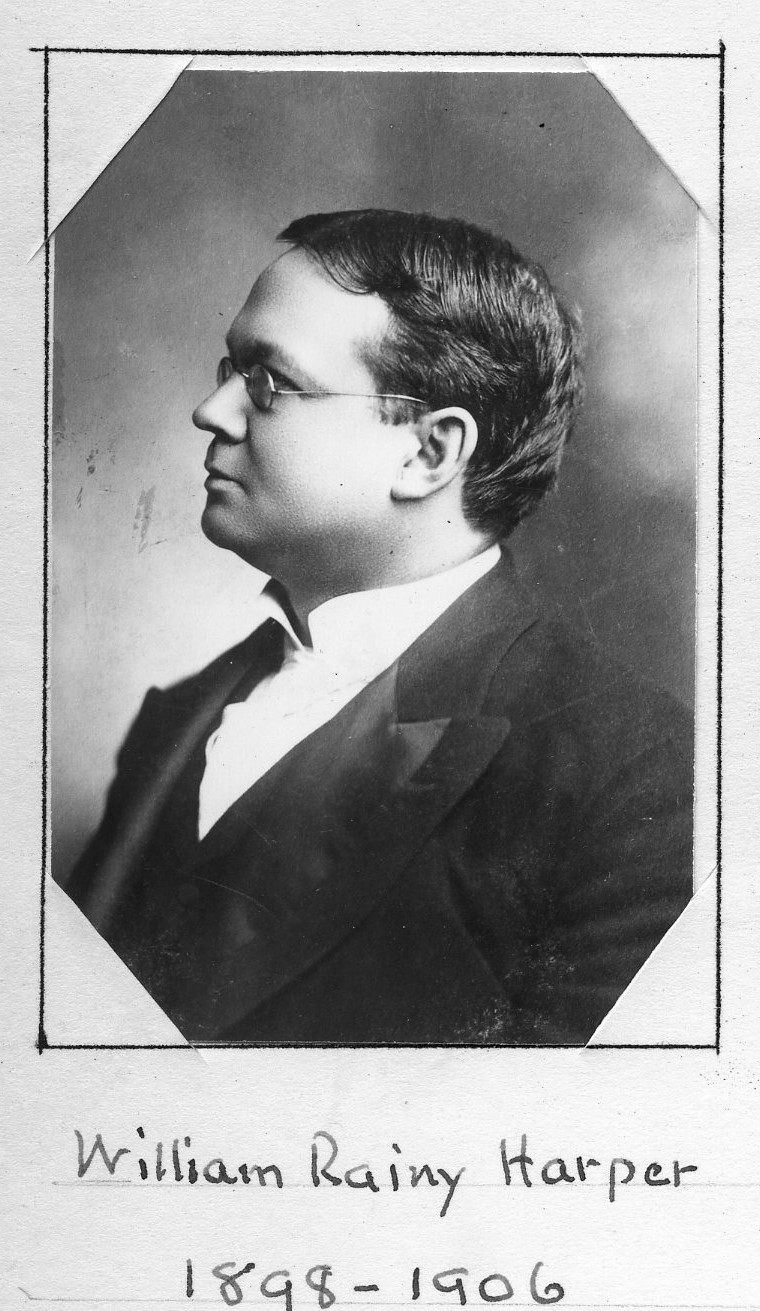President, University of Chicago
Centurion, 1898–1906
Born 26 July 1856 in New Concord, Ohio
Died 10 January 1906 in Chicago, Illinois
Buried Oak Woods Cemetery , Chicago, Illinois
, Chicago, Illinois
Proposed by Nicholas Murray Butler and Charles Scribner
Elected 7 May 1898 at age forty-one
Century Memorial
Dr. William Rainey Harper, whose heroic life closed this week after a struggle with a fatal disease maintained for three years with marvellous patience and courage, leaves a record which as a whole is hardly paralleled in our history, as a scholar, as a teacher, as a student, and original thinker in the science of education, and as an organizer of one of the most extensive and, in many regards, one of the most promising and influential institutions of education of modern times. Stricken at forty-six in the flush of vigorous manhood, he dies at forty-nine, having achieved an amount and variety of labor rarely accomplished in far longer lives. He was born of Scotch descent in 1856 and took his degree of A.B. after the ancient fashion at fourteen, delivering his graduate address in Hebrew. At nineteen he had taken the degree of Ph.D. at Yale. At thirty-one he was appointed Professor of Semitic Languages in that University and two years later was selected as Woolsey Professor of Biblical Literature, having previously taught in various institutions in Tennessee, Ohio, and Illinois. Meanwhile, he had organized the Hebrew Correspondence School, and written valuable works in his specialty. In 1891, at the age of thirty-five, he was called on to undertake the reorganization of the University of Chicago, and that in the last fourteen years had been his task. He made it a gigantic one in the scope planned for the activities of the University and in the means it was to command. The highest authorities in that line cordially recognize the influence it must exert on the intellectual life of the nation, and no expert knowledge is needed to perceive the singular personal gifts which he devoted to it, the broad conception, the foresight, the firm grasp of purpose and method, the indomitable energy, the faculty of working and getting work. With these he united what Dr. Butler describes as a “genius for friendship,” a genius that connotes a wide range of admirable and precious qualities.
Edward Cary
1906 Century Association Yearbook

